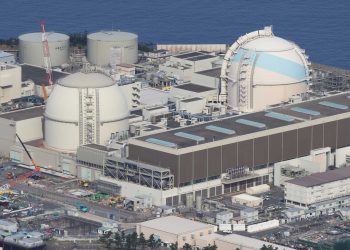Agence France-Presse,
Islamabad: The chief of Pakistan's powerful army on Friday dismissed “unrealistic” fears that Al-Qaeda could seize the country's nuclear weapons, as the military test-fired a ballistic missile.
In a rare foray into politics, the normally reclusive General Ashfaq Kiyani rejected speculation that Pakistan's warheads could be at risk amid the turmoil sparked by the assassination of former premier Benazir Bhutto.
The United States and other Western allies have showed mounting concern about the security of Islamabad's estimated 50 warheads, with Pakistani forces battling a growing insurgency by Al-Qaeda-linked militants.
Kiyani however told troops after the training launch of the medium-range Shaheen-1 (Hatf IV) that the military was “capable of safeguarding and securing nuclear assets against all categories of threat.”
“Referring to international concerns regarding speculative scenarios, he dismissed such concerns as unrealistic and based on a lack of understanding of Pakistan's command and control mechanisms,” an army statement said.
The statement added: “He stressed that creating irresponsible alarm by certain quarters would be counter-productive.”
Former intelligence chief Kiyani has kept a low profile since taking over as chief of army staff from President Pervez Musharraf in November last year. Musharraf seized power in a coup in 1999.
Kiyani is reported to have ordered the army to stay out of politics, but in Pakistan, which has spent more than half its existence under military rule, eyes are always on the head of the 500,000-strong armed forces.
His statement closely follows the line of Musharraf's comments on Pakistan's nuclear weapons during a week-long tour of European countries.
Musharraf said Tuesday that militants could only gain access to Pakistan's nuclear arsenal if Al-Qaeda or the Taliban “defeated the Pakistani army entirely” or if Islamist groups won the country's general elections next month.
“There is a zero percent chance of either one of them,” Musharraf said in Paris. “They (the weapons) cannot fall into any wrong hands.”
Friday's missile test-launch came at the end of an annual training session by the army's strategic force command.
The locally developed Shaheen-1 missile, which has a range of 700 kilometres (440 miles) and is capable of carrying nuclear weapons, is routinely fired during training exercises by the troops.
Pakistan and its regional rival India make frequent missile test launches. The two countries have fought three wars since 1947 and carried out tit-for-tat nuclear test detonations in 1998.
Kiyani said that Pakistan “did not have any aggressive designs against anyone and Pakistan's nuclear capability was solely for the purpose of deterring all types of aggression.”









